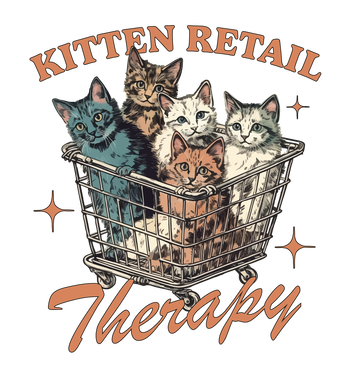|
Post-Traumatic Stress Disorder (PTSD) is a debilitating condition that affects individuals who have experienced traumatic events. Traditional service animals, such as dogs, have long been recognized for their ability to support and assist those with PTSD. However, cats are increasingly being recognized as excellent service animals for individuals struggling with this disorder. In this blog post today, we will explore the reasons why cats can make exceptional service animals for PTSD, including their calming presence, intuitive nature, and low maintenance requirements.
One of the most valuable characteristics of cats as service animals for PTSD is their natural ability to provide a calming presence. Cats possess a serene and soothing aura that can help individuals struggling with anxiety, depression, and hyperarousal. Their gentle purring and warm presence have a proven positive impact on a person's mental well-being and overall sense of calmness. This calming effect aids in reducing the frequency and severity of PTSD symptoms, making them invaluable companions for individuals in need of emotional support. Cats possess a remarkable intuitive nature, often picking up on their owner's emotional state and providing the necessary support accordingly. They are known for their ability to sense distress and respond appropriately, offering comfort and a non-judgmental presence. This ability to empathize and understand enables cats to anticipate their owner's needs, providing comfort during stressful situations and reminding them of their grounding in reality. Their empathetic nature makes them excellent companions for individuals experiencing flashbacks or panic attacks, as their non-verbal support can offer solace and reassurance. Cats have inherent qualities that make them ideal companions for individuals with PTSD, especially those who may have limitations related to physical abilities or energy levels. Unlike dogs, cats do not require strenuous exercise or regular outdoor walks, making them more adaptable to the lifestyle and needs of individuals experiencing PTSD symptoms. Additionally, cats are highly independent and can entertain themselves for extended periods, which is advantageous for individuals who may require solitude for coping purposes. This low-maintenance aspect of owning a cat allows for a stress-free experience and ensures they can provide continuous emotional support to individuals with PTSD. As our understanding of PTSD deepens, it becomes evident that different individuals resonate with various service animal options. While dogs have long been the primary choice, cats are gaining recognition as exceptional service animals for PTSD. Their calming presence, intuitive nature, and low maintenance requirements make them a paw-sitive choice for individuals seeking emotional support. By embracing cats as service animals, we can expand opportunities for individuals with PTSD to find solace, healing, and a path towards better mental well-being. It is crucial to continue exploring the potential benefits of cats as service animals, ensuring those who suffer from PTSD can access a range of options when selecting their perfect companion for recovery.
0 Comments
Leave a Reply. |
AmyMy name is Amy and I raise kittens. Archives
July 2024
Categories |




 RSS Feed
RSS Feed